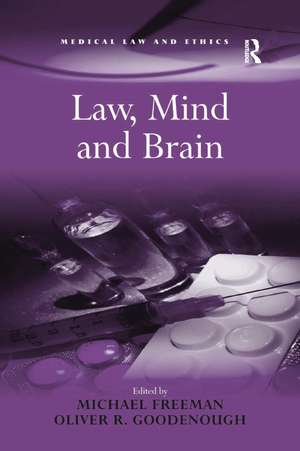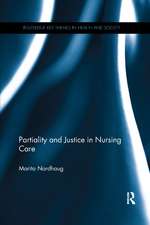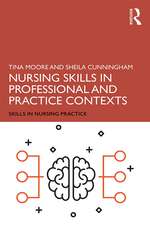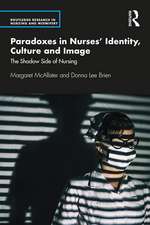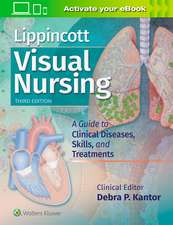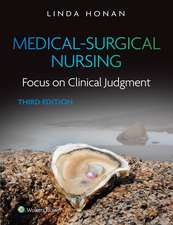Law, Mind and Brain: Medical Law and Ethics
Autor Michael Freeman, Oliver R. Goodenoughen Limba Engleză Paperback – 30 iun 2020
Preț: 365.91 lei
Nou
Puncte Express: 549
Preț estimativ în valută:
70.02€ • 73.31$ • 58.07£
70.02€ • 73.31$ • 58.07£
Carte tipărită la comandă
Livrare economică 09-23 aprilie
Preluare comenzi: 021 569.72.76
Specificații
ISBN-13: 9780367605629
ISBN-10: 0367605627
Pagini: 430
Dimensiuni: 156 x 234 x 28 mm
Greutate: 0.68 kg
Ediția:1
Editura: Taylor & Francis
Colecția Routledge
Seria Medical Law and Ethics
Locul publicării:Oxford, United Kingdom
ISBN-10: 0367605627
Pagini: 430
Dimensiuni: 156 x 234 x 28 mm
Greutate: 0.68 kg
Ediția:1
Editura: Taylor & Francis
Colecția Routledge
Seria Medical Law and Ethics
Locul publicării:Oxford, United Kingdom
Cuprins
Contents: Preface; Introduction, Michael Freeman and Oliver R. Goodenough; Law, responsibility and the brain, Dean Mobbs, Hakwan C. Lau, Owen D. Jones and Christopher D. Frith; Brain imaging and courtroom evidence: on the admissibility and persuasiveness of fMRI, Neal Feigenson; Mind the gap: problems of mind, body and brain in the criminal law, Lisa Claydon; Self-exclusion agreements: should we be free not to be free to ruin ourselves? Gambling, self-exclusion agreements and the brain, Florian Wagner-Von Papp; The problems with blaming, Theodore Y. Blumoff; Why distinguish 'mental' and 'physical' illness in law of involuntary treatment?, John Dawson and George Szmukler; A stable paradigm: revisiting capacity, vulnerability and the rights and claims of adolescents after Roper v. Simmons, Catherine J. Ross; Thinking like a child: legal implications of recent developments in brain research for juvenile offenders, Katharine Hunt Federle and Paul Skendelas; Legal implications of memory-dampening, Adam Kolber; Reframing the good death: enhancing choice in dying, neuroscience, end-of-life research and the potential of psychedelics in palliative care, Robin Mackenzie; Equality in exchange revisited from an evolutionary (genetic and cultural) point of view, Bart Du Laing; Just (and efficient?) compensation for government expropriations, Jeffrey Evans Stake; Examining the biological bases of family law: lessons to be learned from the evolutionary analysis of law, June Carbone and Naomi Cahn; Why do good people steal intellectual property?, Oliver R.Goodenough and Gregory Decker; Cues in the courtroom: when do they improve jurors' decisions?, Cheryl Boudreau; Reflections on reading: words and pictures and law, Christina Spiesel; Index.
Notă biografică
Michael Freeman is Professor of English Law at University College London. His research interests are in cultural pluralism in particular in relation to the rights of children and in medical ethics particularly in relation to medically assisted reproduction.He has published in the areas of Family Law, Child Law and Policy, Children's Rights, Medicine, Ethics and the Law and Medical Law, Jurisprudence and Legal Theory. He is the author of over 40 books, editor of a large number of international journals and a Fellow of the British Academy.
Recenzii
'...of interest to both lawyers and medical professionals...[these chapters] contain insights and observations which significantly further the dialogue between law and science in this important area of debate.' New Zealand Medical Journal '...a worthwhile read as a hint to what the future science of the brain may hold for the practice of law.' Law Society Journal '...this excellent treatise not only contains a collection of very interesting papers characterized by in-depth analysis of most relevant aspects of neuroscientific developments, but also corrects a common misunderstanding, according to which only criminal law is challenged by neurosciences.' Journal of Medicine, Health Care and Philosophy 'This book is a perfect fit for medical law and ethics readers. Those in traditional fields of medicine, psychology and law will also find it very useful especially for the depth with which the issues are covered... highly recommended for postgraduate students not only because of the level of readership it was pitched for but mainly because most chapters in this book identify current research gasps in knowledge.' Metapsychology
Descriere
This edited collection brings together contributions from experts in criminal behaviour, civil law and jurisprudence. Suggesting that legal scholarship and practice will be increasingly enriched by an interdisciplinary study of law, mind and brain, this collection is a valuable addition to the emerging field of neurolaw.
